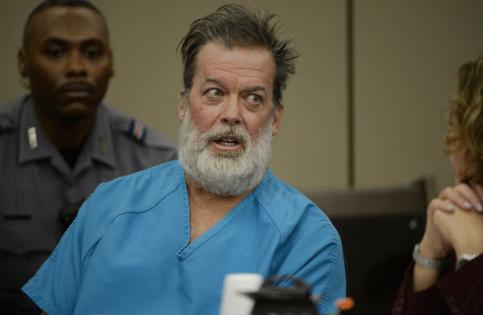Robert Dear, shooter in 2015 Colorado Springs Planned Parenthood attack, dies at 67, feds report
Published in News & Features
DENVER — The man accused of killing three people and wounding nine others at a Planned Parenthood clinic in Colorado Springs a decade ago died Saturday, according to Federal Bureau of Prisons records.
Robert Dear, 67, has been in state or federal custody since the 2015 mass shooting. Federal prison records list him as “deceased,” but no further details were immediately available about his death.
Dear was accused of attacking the Planned Parenthood clinic on Nov. 27, 2015. Authorities believe he intended to wage “war” on the clinic because the staff performed abortions. He arrived armed with four SKS rifles, five handguns, two more rifles, a shotgun and more than 500 rounds of ammunition, according to the U.S. attorney’s office.
Twenty-seven people who were inside the clinic at the time hid until they could be rescued by law enforcement, according to prosecutors. Dear fired 198 rounds in the attack and tried to blow up propane tanks to take out law enforcement vehicles during a five-hour standoff.
Those killed were Ke’Arre Stewart, 29, Jennifer Markovsky, 36, and Garrett Swasey, 44, a campus police officer who responded to the clinic after hearing there was an active shooter.
Dear confessed to carrying out the mass shooting at the abortion clinic but was never convicted of state or federal crimes in connection with the attack because he was always considered to be too mentally ill to go through the court process — that is, he was consistently found incompetent to stand trial.
In September, a federal judge started the process for Dear to be committed long-term to a mental health facility in Missouri after finding he was unlikely to be restored to competency.
A competency evaluation considers whether a criminal defendant is mentally ill or developmentally disabled, and whether that mental illness impedes the defendant’s ability to understand the court process. Rooted in the constitutional rights to due process and a fair trial, competency centers on two prongs — whether defendants have a factual and rational understanding of the proceedings, and whether defendants are able to consult with their attorneys and assist in their own defenses.
Experts have previously testified that Dear understood the facts and circumstances of his case but was still incompetent to proceed because he could not assist in his own defense.
The decision to commit Dear to a mental health facility in Missouri came nearly three years after Blackburn ordered that Dear be medicated against his will in 2022. Federal prosecutors believed doing so would restore him to competency.
Dear, who called involuntary medication a “chemical lobotomy,” challenged that order all the way to the U.S. Supreme Court, which in February refused to take up the case. Blackburn then ordered that Dear’s treatment go forward, and the involuntary medication started in April.
The medication did not restore him to competency, the judge found in September.
_____
©2025 MediaNews Group, Inc. Visit at denverpost.com. Distributed by Tribune Content Agency, LLC.







Comments